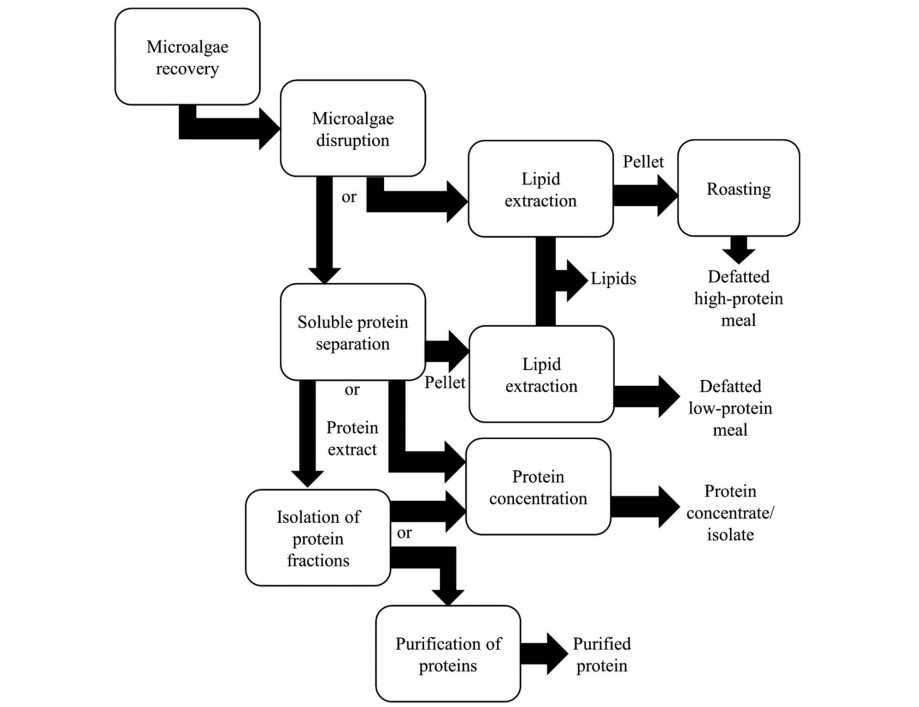Microalgae are a viable source of biological components such as carbohydrates, lipids, pigments, vitamins, and polyphenols, especially proteins. The protein quality in microalgae is known to be similar to that of some traditional protein sources such as milk, meat, and eggs. Their high protein content (40-70% dry weight) makes them a potential source of sustainable green protein for human nutrition, animal feed, aquaculture, and the production of functional foods and bioactive peptides. Microalgal proteins are currently industrially exploited as natural crude extracts or partially purified extracts. However, limited protein availability due to rigid cell walls, high concentrations of anionic or non-polar polysaccharides, and inherent problems related to protein stability lead to the extraction of high-quality proteins from microalgae remains a technical challenge. Therefore, there is an urgent need to develop an efficient technique to extract microalgal proteins.
 Fig 1. Basic scheme of routes proposed to obtain microalgae proteins. (Amorim M L, et al., 2021)
Fig 1. Basic scheme of routes proposed to obtain microalgae proteins. (Amorim M L, et al., 2021)
Using protein extracts with representative and consistently high-quality results is essential in proteomics studies. At Lifeasible, we provide professional service for isolating microalgal proteins to extract high-quality native proteins from microalgae for proteomics, post-translational modifications, and computational analysis. For years, our skilled scientists have been searching for optimized methods to disrupt all microalgal cells and extract proteins, including:
In addition, we perform a systematic analysis of protein profiles to identify potentially exploitable extracts and proteins. Protein extraction methods need to be adapted to the sample type, and we offer an inexpensive, simple, customized solution for microalgal protein extraction.
(1) Select a suitable method to disrupt the microalgae cell wall.
(2) Separate the solubilized proteins from the disrupted microalgae by centrifugation.
(3) Determine the amount and quality of lysed proteins in the supernatant.
(4) Quantification of proteins by Bradford method.
(5) Evaluate the quality of proteins by one-dimensional (1D) sodium dodecyl sulfate-polyacrylamide gel electrophoresis (SDS-PAGE).
We use a gentle protein extraction method for microalgae to help you obtain high-quality protein extracts for proteomics studies. If you are interested in our solutions for the isolation of microalgal proteins, please contact us directly.
Reference
Lifeasible has established a one-stop service platform for plants. In addition to obtaining customized solutions for plant genetic engineering, customers can also conduct follow-up analysis and research on plants through our analysis platform. The analytical services we provide include but are not limited to the following:
July 13, 2024